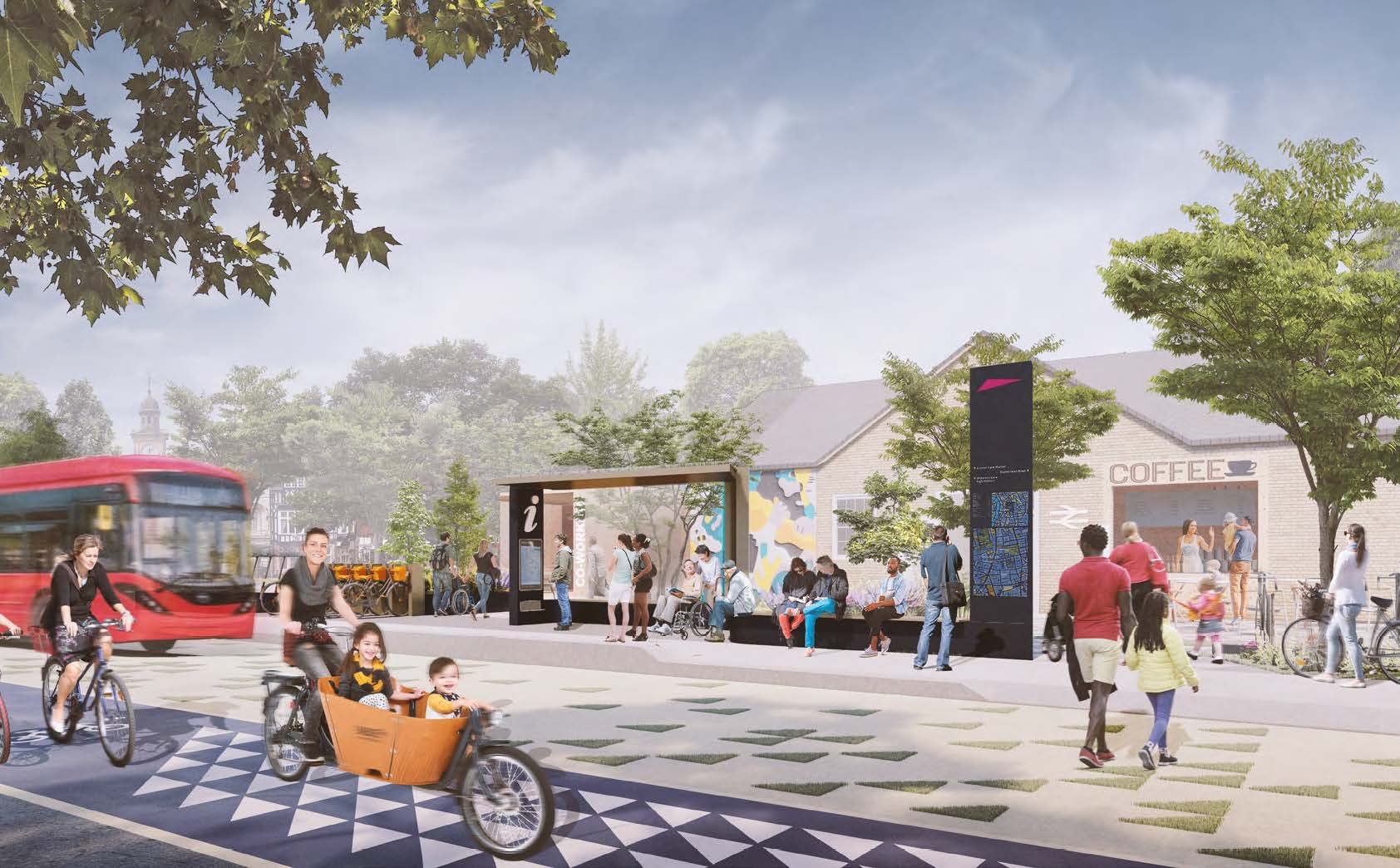Stage 2 FAQs (TFDP Slide Deck)
This document provides Towns with answers to Frequently Asked Questions regarding the Towns Fund Delivery Partner support in the Towns Fund programme. The questions have been divided into eight categories, and includes FAQs which have been officially published by DLUHC in formal communications.
This document provides Towns with answers to Frequently Asked Questions regarding the Towns Fund Delivery Partner support in the Towns Fund programme. The questions have been divided into ten categories, and includes FAQs which have been officially published by DLUHC in formal communications.
The latest version of this document was published on 28/07/22
Project Close Out Report
Project closure is often a stage that is neglected as people move onto other assignments and significant energy has been focused on bringing an asset into use. It is however an important time to take stock, assess the successes and failures and most importantly, identify the areas of learning that can be transferred to other projects. This is especially important in a Towns Fund context as many Towns are delivering multiple projects, at different times but with similar challenges to overcome. This Project Close Report template has been produced to provide a straightforward but effective way of capturing useful information from the project team that, if populated correctly will serve well from both traceability and lessons learned perspectives. This report should be endorsed through governance via a final decision gate and although is the responsibility of the Sponsor, will often be produced by the project team who have had the first-hand experience of delivery.
Making the Case for Public Realm Investment
This document provides guidance on how to appraise public realm projects and set a compelling case for intervention. This guidance includes step-by-step methodology on how to estimate and capture the economic and social benefits of public realm investment to inform the Value for Money Assessment.
Engagement in the Post-COVID World
Since the start of the COVID-19 pandemic, businesses, community groups, councillors and MPs (and more) have had to learn how to engage in new ways. As we enter into a post-COVID environment, it is important to implement blended engagement techniques, applying the digital skills developed since the start of the COVID-19 pandemic.
This guidance outlines the steps to follow to help ensure engagement remains consistent, accessible and far-reaching.
Renewable Powered Towns
This resource explores the opportunities Towns can take to work towards reaching net zero legislative goals. The options are set against a backdrop of the impact of supply constraints in the energy market so far. Through existing procurement powers, local authorities can reshape how energy is supplied to existing and future assets to meet their energy demands.
Media Relations
Whether you’re already starting to deliver your projects or are still working on your Business Cases, this guidance will take you through the key ingredients you need to deliver effective, compelling communications through the press.
This document will provide you with the necessary guidance to plan, prepare, and deliver proactive engagement with journalists, and the steps to follow if negative press is published about a project.
Communicating and Engaging During Delivery
Whether you’re already starting to deliver your projects or are still working on your Business Cases, it is key that you continue to put communications and engagement at the heart of your respective projects’ strategies and visions.
This guidance has been developed to help you maintain and progress your communications and engagement from Business Case to project delivery.
How to engage with branding during delivery
As you move into project delivery, it’s important to adapt your branding to ensure you continue to engage with the stakeholders your projects are impacting the most. We have published this guidance resource for branding and project delivery to help you achieve this.
Towns Fund Communications and Engagement playbook
This communications and engagement playbook provides a comprehensive overview of the resources available to you on communications, consultation, community and stakeholder engagement through the Towns Fund Programme. These resources can help you develop your Business Cases and enhance project delivery to support you in this next stage of the programme.
As you finalise your Business Case and look ahead to delivery, we know that you will need to engage communities about your plans and keep them informed as your project progresses. This resource guide provides you with links to a range of documents to help you do just that.
Pipeline Tracking Routemap
Having a clear strategic overview of proposed projects can put Towns in a stronger position to realise their ambitions. This portfolio view can be used in several ways, including to create consensus around possible future interventions and to engage with politicians, prospective investors and other key stakeholders to continue to bring vision to reality.
The Towns Fund Delivery Partner has designed this simple Portfolio Template and Dashboard to help you set out your pipeline of potential projects and to look at these through different lenses.
The spreadsheet includes a page with instructions and definitions to help you use the Template and Dashboard. You will also find a short tutorial video below.
Net Zero Implementation Pathways: Cycling Infrastructure
The third in our series of Net Zero Implementation Pathways series, this document looks at the meaning of net zero in cycling infrastructure projects.
Road transport currently accounts for 22% of all carbon emissions in the UK and is a major contributor to poor levels of air quality. The UK will only meet its net zero 2050 target and address the climate emergency in a meaningful way if it supports a modal shift to green and active travel. This will be achieved by implementing the necessary infrastructure, schemes and monitoring frameworks in its towns and cities that promote convenience, affordability, and safety complimented with the shifts required in behaviour.
Net Zero Implementation Pathways: Refurbishment
Following our guidance document on Net Zero Implement Pathways: New Development, we are pleased to publish this further guidance for Towns on how to implement net zero objectives through refurbishment.
The guidance document includes an overview of net zero in refurbishment, with key examples from Towns as well as business case tips and links to other useful resources.
Net Zero Implementation Pathways: New Developments
Globally, approximately 38% of energy related greenhouse gas (GHG) emissions are attributed to the building industry, with 28% deriving from building operation and 10% from the materials used in their construction and maintenance. To achieve net zero emissions by 2050 globally and in the UK, this decade must be spent at least halving emissions by 2030 from business as usual. These reductions must be applied across the entire building systems value chain, and taking a whole carbon lifecycle approach.
We are introducing these Net Zero Implementation Pathway guidance documents, to help Towns consider the pathway to implementation (including monitoring and evaluation) that lead to the best outcome from a net zero perspective. They intend to help you understand what you need to be thinking about at each stage of the lifecycle, who you need to engage, and what best practice and standards look like.
This document, the first in the series, sets out some guidance to ensure that towns in the UK are building and maintaining new developments in an environmentally and socially just way, not only to reduce emissions and build resilience to the worsening effects of climate change, but to boost local economies and create thriving, healthy communities.
Commercial Models and Attracting Investment
This paper provides guidance on considerations for Towns on the commercial structure of a project for which they have received a Towns Fund allocation. It provides this information in the context of understanding the structure and content of a Business Case.
Drawing on experience of running HM Treasury’s Better Business Case (BBC) training for circa 80 regeneration officers from the 101 Towns involved in the Towns Fund programme, and for members of the central DLUHC team, including the common questions raised, this guidance specifically considers the commercial case in parallel with the use of private / alternate financing.
Introducing the Protect Duty
Earlier this year, a government consultation took place that would introduce a Protect Duty; a piece of legislation that would place greater responsibility on owners and operators of Publicly Accessible Locations (PALs) - formerly known as Crowded Places and Spaces - to improve the protection of the public from terror attacks and criminal activity.
This two-page note provides details of what the Protect Duty is, and how it may impact Towns.
Moving from OBC to FBC
This guidance document sets provides an overview of the fundamental considerations for Towns as you move from OBC to FBC.
Although we recognise Towns will be at different stages of the business case process (for example, shovel-ready projects are likely to be at FBC stage), for the purpose of this document we will focus on the transition between OBC stage to FBC stage.
We have produced this guidance in accordance with Green Book Guidance and in relation to the TFDP Business Case Template (optional).
Match Funding Guidance
Towns have successfully submitted their Town Investment Plans and have prepared, or are currently preparing, Business Cases for their interventions. As part of the preparation of these Business Cases, Towns need to consider all the sources of funding and how these sources will be used to deliver their interventions.
This short note sets out guidance on match funding, and more widely co-funding, for Towns as part of the production of Business Cases for the projects that were allocated Towns Fund funding. While it is not an exhaustive or fully comprehensive note, it aims to support the development of the Business Cases and decision making of Towns.
It should be noted that a degree of judgement will still need to be applied by Towns on a case-by-case basis when explaining how match funding has been achieved. We have included some examples at the end of this guidance.
An Introduction to 20-minute Neighbourhoods
This short learning burst provides an introduction to 20 minute neighbourhoods, giving a brief history of the concept and outlining how the Covid-19 pandemic has resulted in an increased desire to have local services available. The presentation also provides some case study examples and key considerations for implementing a 20 minute neighbourhood. A copy of the presentation slides is also available for download.
Tax Considerations
This document sets out—at a high level—some key prompts and considerations that Towns may wish to consider in determining how they constitute themselves in projects or take certain actions, with a focus on potential tax implications.
This document sets out—at a high level—some key prompts and considerations that Towns may wish to consider in determining how they constitute themselves in projects or take certain actions, with a focus on potential tax implications. This document is purely informative and does not constitute advice.
The following taxes and issues are discussed:
Activities conducted within the local authority
Activities conducted by Special Purpose Vehicles (SPVs)
Stamp Duty Land Tax (SDLT)
VAT in SPVs and local authorities
The document is set out with some key information relating to these four topics and questions that Towns should ask themselves and / or specialists. This is not an exhaustive list of topics or queries Towns need to take into consideration from a tax perspective, and if you have further questions, you should consult your local tax and finance teams.
Delivery and Procurement Methods
This short guidance evaluates both delivery and procurement methods against the needs of the Towns, setting out key considerations to consider when identifying the options for delivering their project.
This short guidance evaluates both delivery and procurement methods against the needs of the Towns, setting out key considerations to consider when identifying the options for delivering their project.


















